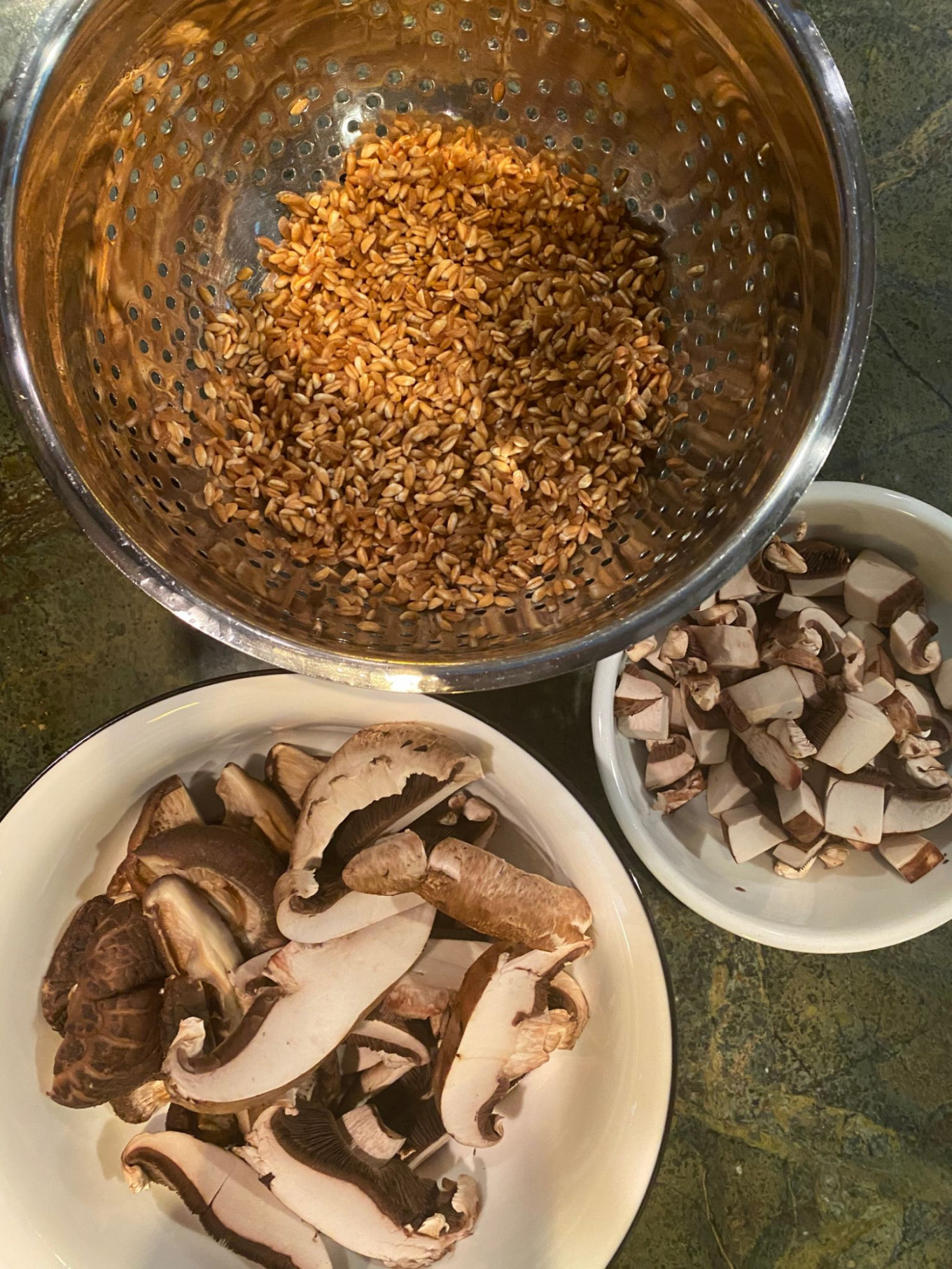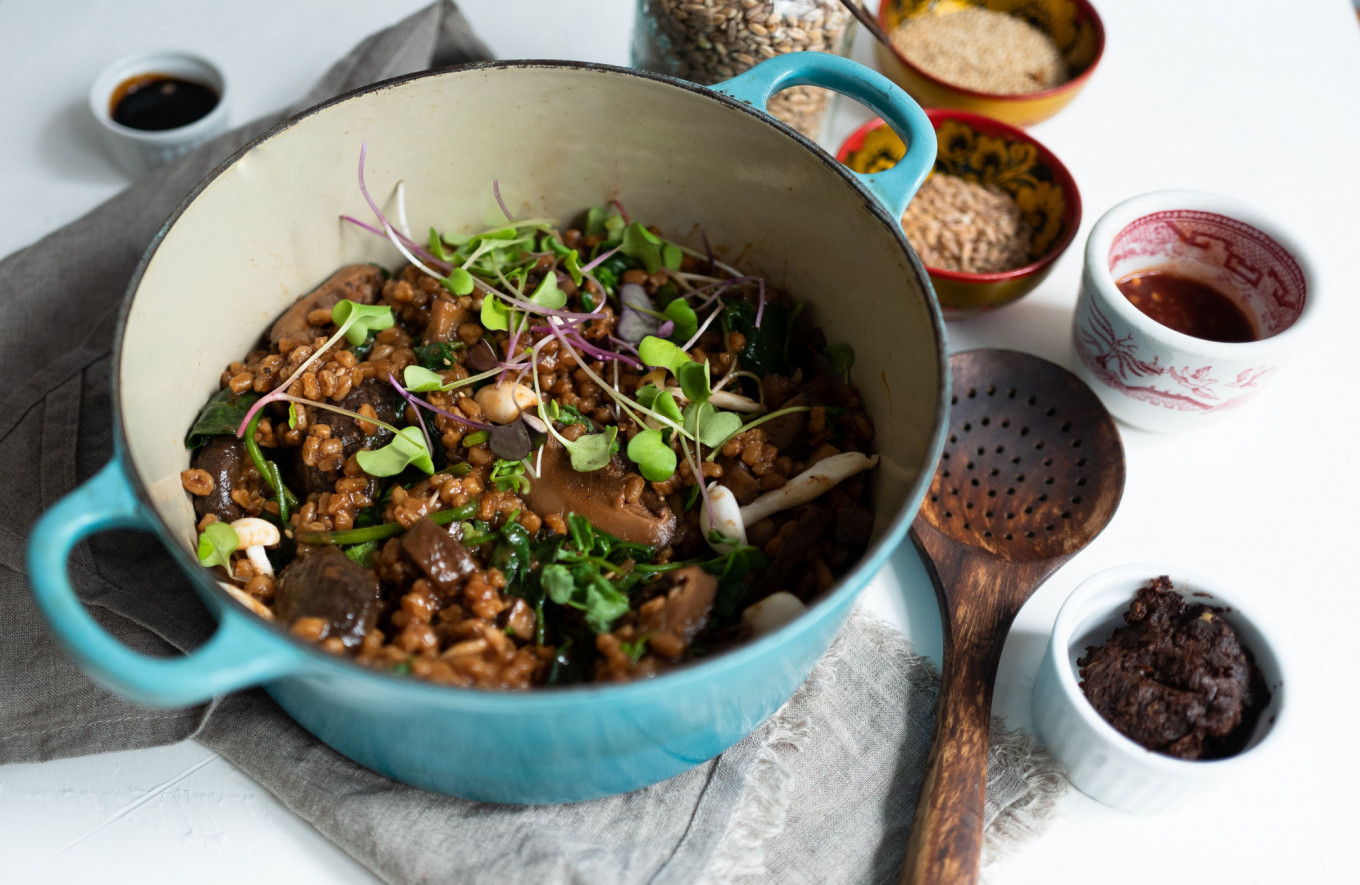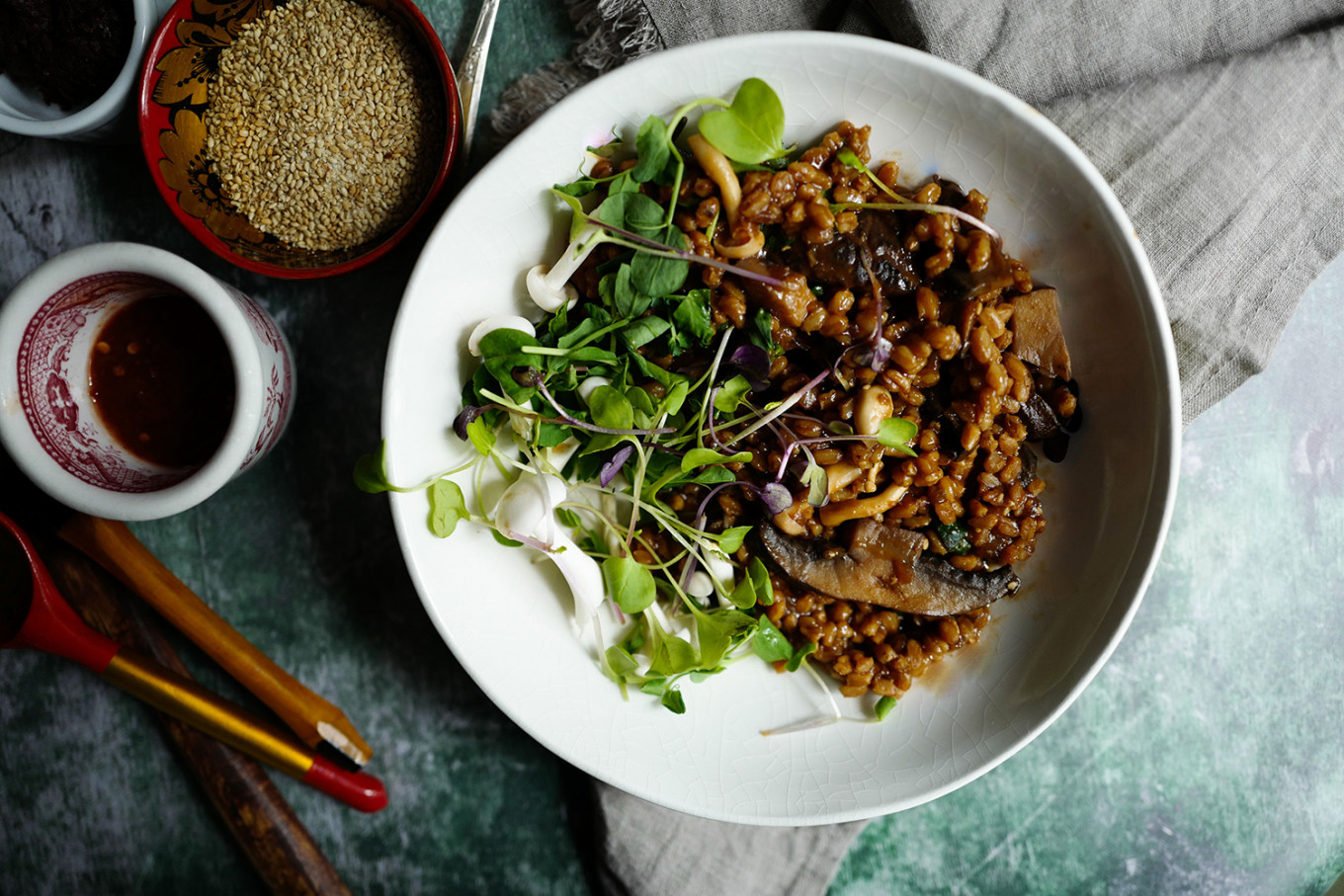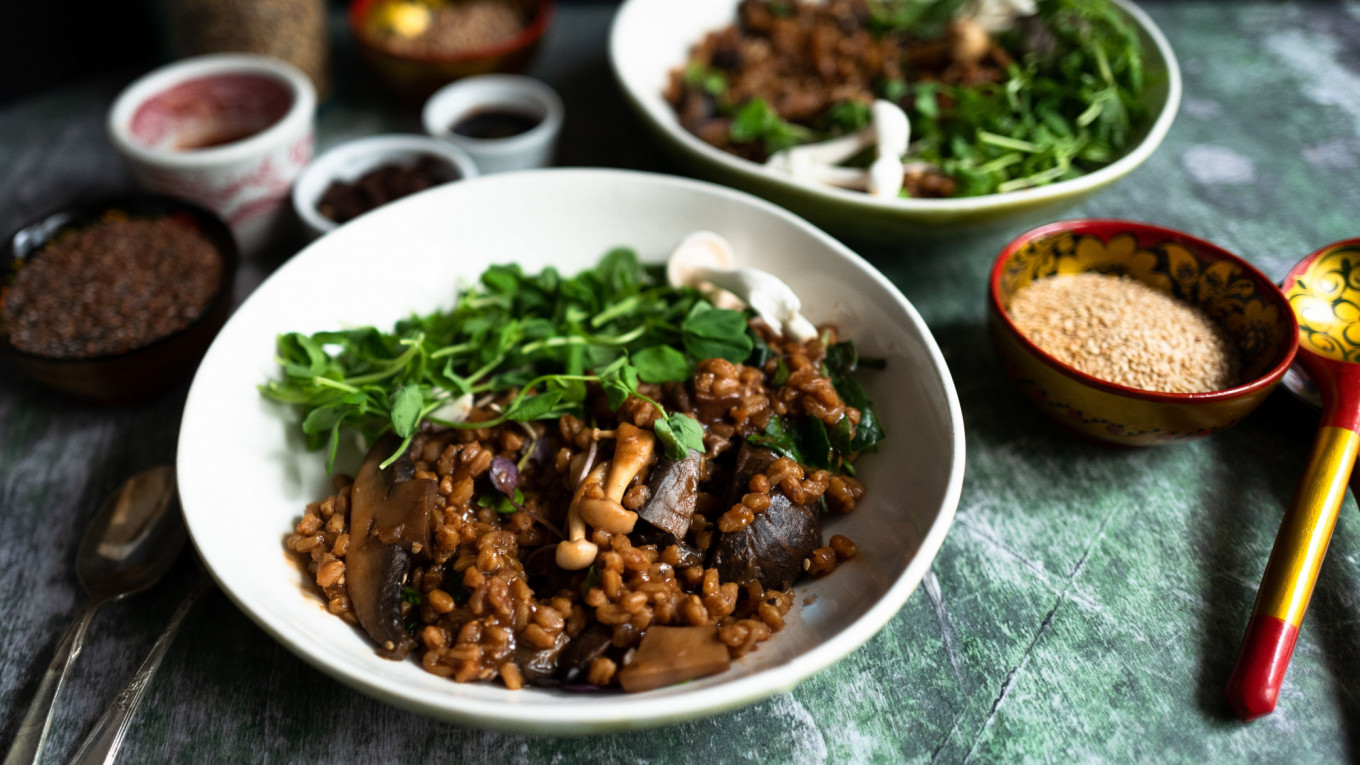There is no greater culinary contrast in Russia than the transition from Maslenitsa — the weeklong Shrovetide festival — to the somber beginning of Lent, the long fast which precedes Easter. From buttery pancakes with thick cottage cheese filling, fistfights, and a round-the-clock carnival atmosphere, the mood becomes far more contemplative and the diet positively Spartan.
For Orthodox Christians this week marks the beginning of a grueling 48-day program of eschewing dairy and eggs, meat, poultry, fish, oil, and alcohol.
More cynical culinary historians than I attribute this long list of forbidden foods on Russia’s demanding agricultural cycle. It is true that for the pre-revolutionary peasantry, late winter and early spring were a time of privation: cows had yet to calve so there was no fresh milk, any salted or dried meat or fish stores would run low, and even the dependable root cellars were almost bare.
But the great Russian soul is more complicated than a neat agricultural explanation. The cycle of abundance and paucity is deeply engrained in the Russian psyche and national culture. Suffering and deprivation must precede joy, and the joy of Easter has no equal in Russia’s liturgical calendar. So, the fast must be stringent, and with only a handful of days when these rules are relaxed slightly to permit oil, alcohol, and occasionally fish, Russians now face a spiritual and culinary challenge like no other.
But these privations do not stop Russians from at least attempting the Great Fast — whether as a mandatory health kick or spiritual exercise. And although the strict fast offers as much of a challenge to the cook as it does the penitent, it also offers a marvelous opportunity for in-depth exploration of the foods that are permitted: fruits and vegetables, grains and pulses, seafood, nuts and seeds, and sugar, honey, and jam.

These days Russian supermarkets and restaurants have embraced a world full of non-traditional foods and flavors to make Lent not just palatable, but delicious. Miso paste is a highly versatile product that can be made into a broth or used as the base for a sauce. Dashi — Japan’s indispensable broth brewed by steeping kelp, seaweed, and mushrooms provides a solid base for soups with a strong umami underpinning. Both offer excellent flavor notes for those who are missing meat. Asian and Middle Eastern condiments such as soy sauce, vegetarian oyster sauce, spice blends, Indian chutneys, tahini, sesame seeds, seaweed snacks, and bonito flakes can provide extra layers of flavor and that essential umami kick that many Lenten dishes lack. Finally, a good spicy hot sauce — whatever its origins — can go a long way to just brightening your day.
This week’s recipe is a riff on the classic Russian buckwheat and mushroom dish, high on every Russian’s list of comfort food. Here I’ve paired farro with both dried and fresh mushrooms in a hearty pilaf. Soy and oyster sauces and a flavorful broth from red barley miso stock add to the rich flavor. I throw in a generous handful of fresh spinach at the end, and garnish it with crunchy pea shoots, but you might add roasted carrots and parsnips, blanched peas, or braised leeks with equal success. The taste only gets better if you allow this dish to sit overnight, so perhaps you might double the recipe.

Miso Mushroom Farro Pilaf
Ingredients
- 2 cups (475 ml) pearled farro
- 2 shallots, finely minced
- 3 ½ oz (100 grams) dried mushrooms
- 1 ½ lb (680 grams) fresh wild mushrooms, cleaned and sliced (chunkier slices work well here)*
- 4 cups (950 ml) vegetable or mushroom stock
- 2 Tbsp red barley miso
- 2 Tbsp soy sauce
- 2 Tbsp oyster sauce
- 2 Tbsp tomato paste
- 2 Tbsp lemon juice
- 3 cups (700 ml) fresh spinach, well washed
- 1 bunch pea shoots or fresh parsley to garnish
- Salt
*If you have access to more delicate mushrooms such as enoki, a few of these in the mix are a nice touch. Save them to add into the pilaf when you add the spinach.
Instructions
- Rinse the farro under warm water for 2 minutes. Set aside.
- Steep the dried mushrooms in 2 cups of boiling water. Press the mushrooms to submerge them into the water, then leave for at least 30 minutes. Drain the mushroom liquid and reserve. Rinse the rehydrated mushrooms, slice, and set aside.
- Bring the stock and the mushroom liquid to a slow simmer. Decant ⅓ cup (80 ml), then dissolve the miso paste into the remaining stock and set aside.
- Heat the decanted stock in a heavy-bottomed pot, then add the shallots. Sauté for 2-3 minutes until they become limp, sprinkling a pinch of salt over them. Add the farro and stir to combine, then add the tomato paste and toss until the grains are well coated. Cook for 1 minute before adding the soy sauce and oyster sauce and another pinch of salt. Cook for 1 minute, stirring constantly.
- Add all the mushrooms (except for the delicate enoki-types if using) and cook for another 2-3 minutes until the fresh mushrooms become limp. Then add the stock and mushroom liquid and bring to a slow boil. Cover the pot, lower the heat, and cook at a low simmer, stirring occasionally, for 40-45 minutes until the farro has swelled and the contents of the pot resemble a thick stew with some of liquid remaining. Test the farro to determine if it is done; it should be chewy.
- Remove the pot from the heat, add the lemon juice and spinach, and toss until the spinach becomes limp. Garnish with pea shoots and/or fresh parsley.

A Message from The Moscow Times:
Dear readers,
We are facing unprecedented challenges. Russia's Prosecutor General's Office has designated The Moscow Times as an "undesirable" organization, criminalizing our work and putting our staff at risk of prosecution. This follows our earlier unjust labeling as a "foreign agent."
These actions are direct attempts to silence independent journalism in Russia. The authorities claim our work "discredits the decisions of the Russian leadership." We see things differently: we strive to provide accurate, unbiased reporting on Russia.
We, the journalists of The Moscow Times, refuse to be silenced. But to continue our work, we need your help.
Your support, no matter how small, makes a world of difference. If you can, please support us monthly starting from just $2. It's quick to set up, and every contribution makes a significant impact.
By supporting The Moscow Times, you're defending open, independent journalism in the face of repression. Thank you for standing with us.
Remind me later.







